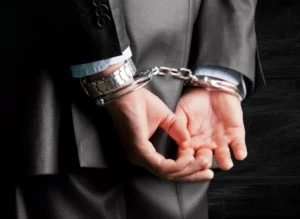
In the state of Florida, licensing serves as a critical aspect of various professional sectors, from healthcare and law to construction and cosmetology. These licenses not only establish a standard of knowledge and skill for these professions but also play an essential role in safeguarding the well-being of the general public.
The consequences for practicing without a license can be severe, including hefty fines, legal ramifications, and even imprisonment in some instances. The importance of understanding how Florida discovers unlicensed professional activity cannot be overstated. This FAQ article aims to provide a comprehensive guide to the methods employed by the state in identifying such unauthorized activities, as well as what one can expect if caught practicing without a license. If you need further guidance, then do not hesitate to contact The Law Place for a free consultation with an experienced Florida criminal defense lawyer.
Why is Licensing Important?
Licensing serves multiple vital functions in professional sectors. First and foremost, it is a tool for ensuring public safety. Licensing requirements often mandate rigorous training and assessments to ensure that professionals are adequately skilled and knowledgeable. Secondly, licensing maintains a level of professionalism and competency within various fields, which aids in sustaining public trust. Lastly, in many sectors, obtaining a license is a legal requirement, failing which one could face significant penalties, including criminal charges. All of these factors underscore the essential role of licensing in both protecting the public and maintaining the integrity of professional sectors.

What Constitutes Unlicensed Professional Activity?
The act of offering or rendering services that legally require a license, without possessing the said license constitutes practicing without a professional license in Florida. This can include actively practicing in fields like medicine, law, real estate, or construction without appropriate credentials. It also extends to advertising oneself as a licensed professional when one is not, thereby misleading the public. Professions commonly requiring licensing in Florida include, but are not limited to, healthcare providers, lawyers, contractors, cosmetologists, and real estate agents. Engaging in these activities without proper licensing is not only unethical but also illegal, attracting serious penalties and repercussions.
 We’re here to serve you. Our phones are open 24 hours a day.
We’re here to serve you. Our phones are open 24 hours a day. Methods of Detection of Unlicensed Professional Activity in Florida
Reporting by Licensed Professionals
Florida law places an ethical and sometimes legal duty on licensed professionals to report any unlicensed activity they encounter in their respective fields. These reports are often submitted to the Florida Department of Business and Professional Regulation (FDBPR), which is the department responsible for overseeing various professions and issuing licenses. Licensed contractors, attorneys, healthcare providers, and others can file complaints through online portals, emails, or phone calls. Reporting helps combat unlicensed activity and protects both the profession and the consumers.
Complaints from Consumers or Clients
Consumer awareness plays a pivotal role in how Florida discovers unlicensed professional activity. Clients or consumers who suspect they are dealing with an unlicensed contractor or any other unlicensed professional can file complaints with the Florida Department of Business and Professional Regulation or county offices. These complaints usually trigger an investigation, which may involve law enforcement personnel, into the alleged unlicensed activity. Financial penalties may be imposed upon the subject of the investigation, along with potential license revocation for those falsely claiming to have a license.
Routine Inspections and Audits
The Florida Department of Business and Professional Regulation often performs routine inspections and audits to determine if businesses are complying with state rules. Professions such as contractors, real estate agents, and healthcare providers are common targets for these inspections. Inspectors look for valid licenses, adherence to professional standards, and proper handling of contracts and fees. Failure to comply could lead to financial costs for the business, as well as legal consequences such as license revocation. These inspections are crucial to Florida’s efforts to protect consumers and combat unlicensed activity.
Sting Operations
Sting operations are another way Florida law enforcement personnel and the Department of Business and Professional Regulation actively combat unlicensed contractor activity and other illegal practices. These operations involve undercover agents posing as consumers to catch unlicensed contractors or other professionals offering services that require a license. In many cases, these agents may offer to pay for services related to real property or request proposals to determine the contractor’s intent to perform unlicensed work. Convictions often result in hefty financial penalties, and in some instances, criminal charges.
By understanding these various methods—ranging from consumer complaints and professional reporting to inspections and sting operations—you get a comprehensive view of how Florida discovers unlicensed professional activity, the rules governing it, and the penalties that those caught in violation could face.
 We’re Florida’s top litigation team with over 75 years of combined experience
We’re Florida’s top litigation team with over 75 years of combined experience What Happens After Unlicensed Activity is Discovered?
Immediate Actions
Once unlicensed activity is detected, immediate actions are often taken by the Florida Department of Business and Professional Regulation to cease the illegal activity. This usually involves issuing a cease and desist order, effectively prohibiting the individual or business from offering any more of the unlicensed services. Financial fines may also be levied at this stage to deter further violations.
Legal Proceedings
Discovery of unlicensed activity can lead to criminal charges being filed against the offender. This typically commences with an investigation by law enforcement personnel and may culminate in court hearings. Depending on the gravity of the offense, charges can range from misdemeanors to felonies under Florida law.
Penalties
If found guilty, the penalties for practicing without a license in Florida can be severe. They often include criminal charges, monetary fines, and in extreme cases, jail time. Florida statutes provide a range of penalties depending on the profession involved and the specific nature of the unlicensed activity, so consequences can vary widely.
 From the initial call to updates on your case status, we are here to get you answers.
From the initial call to updates on your case status, we are here to get you answers. What Are the Defenses Against Such Charges?
Lack of Knowledge
Ignorance of the law is generally not a valid defense. However, the complexities of licensing laws in Florida sometimes create situations where individuals genuinely misunderstand the requirements. In such cases, demonstrating a lack of intent to violate the law may serve as a mitigating factor during legal proceedings.
Accidental or Incidental Practice
In some instances, a person might engage in unlicensed activity unintentionally or under exceptional circumstances. If you can prove that there was no intent to practice without a license and the activity was accidental, it may be possible to have the charges reduced or dismissed.
Paperwork Errors
Administrative errors or delays in license renewal can sometimes lead to unintended unlicensed activity. Showing that efforts were made to comply with licensing requirements and that the lapse was due to an administrative mistake may help in minimizing penalties.
Good Samaritan Laws
Florida law recognizes Good Samaritan provisions, which protect individuals offering emergency services from legal repercussions. However, the application of these laws to unlicensed activity is limited and usually applies only to life-or-death situations.
How Can The Law Place Help?
The Law Place has a wealth of experience handling cases involving unlicensed professional activity. Our guidance encompasses consultation, advising on how best to navigate the complexities of Florida’s licensing laws, and devising effective legal defense strategies. If you find yourself facing charges related to unlicensed activity, don’t hesitate to contact us for personalized legal assistance.
how does florida discover unlicensed professional activity? FAQ
What is the Florida Department of Business and Professional Regulation responsible for?
The Florida Department of Business and Professional Regulation (DBPR) oversees the licensing and regulation of various professions in the state. It is also the department that investigates reports of unlicensed activity and takes enforcement action when necessary.
How are fines determined for unlicensed activity?
Financial penalties for unlicensed activity vary depending on the profession involved and the specific circumstances of the case. Penalties can range from hundreds to thousands of dollars, as dictated by Florida statutes.
What is a cease and desist order?
A cease and desist order is an official directive from the Florida DBPR that instructs an individual or business to immediately stop engaging in unlicensed activity. Failure to comply can lead to further legal actions.
Are there circumstances under which I can practice without a license?
The law does provide certain exceptions, such as Good Samaritan Laws for emergency situations. However, these are limited in scope and generally do not excuse unlicensed professional activity in a business setting.
Can licensed professionals be penalized for not reporting unlicensed activity?
Yes. In some professions, there is a legal and ethical obligation to report unlicensed activity. Failure to do so can result in disciplinary action by the respective licensing board.
What role do law enforcement personnel play in combating unlicensed activity?
Law enforcement personnel often collaborate with the Florida DBPR in conducting investigations, particularly in sting operations. They may also be involved in enforcing cease and desist orders or other legal actions.
How can I check if a contractor or professional is licensed?
You can verify a professional’s license status through the Florida DBPR’s online search function or contact them directly for verification. It’s a crucial step before hiring any professional for services that require a license.
If I’m charged with unlicensed activity, can I still obtain a license in the future?
Being convicted of unlicensed activity can impact your ability to obtain a license in the future. The specific ramifications depend on the profession and the licensing board’s rules.
How can an attorney help if I’m facing charges for unlicensed activity?
An attorney can provide legal advice, help you understand your rights, and craft a defense strategy that may include disputing the charges, negotiating penalties, or representing you in court proceedings.
Contact The Law Place Today!
Understanding how Florida detects unlicensed professional activity is crucial, especially given the severe risks and penalties involved. From immediate actions like cease and desist orders to more serious consequences like criminal charges and jail time, the repercussions can be life-altering. The Law Place offers legal services aimed at helping you navigate the intricacies of this sensitive subject. Whether you’re a professional caught in a licensing dilemma or a consumer-facing issues, our legal team is here to assist you in finding the best course of action.



